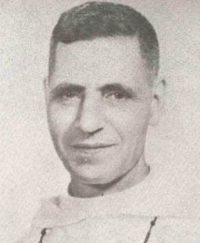A spirited exchange of fire woke us up last night and alarmed the whole neighborhood of these mountains from exactly 1:00 to 3:00 A.M. The discharge of rifles, pistols and machine guns thundered through the valleys and hills, resounding with the echoes of a real battle.
We suspected the aggressors to be the guerrillas of the surrounding mountains who, on orders of some over-zealous subordinate officer, wanted to make a show of force. Thousands of armed but peaceful rebels roam these mountain ranges, awaiting orders from the High Command in Leyte to commence the offensive. Some of them whom we chanced upon in the streets, revealed to us the names of their leaders and commands, and estimated that their force which was augmented daily with new recruits from La Union and Ilocos was somewhere between 30,000 to 40,000.
A few weeks ago, a team “kidnapped” the wife of Pres. Osmeña in this city and escorted here to one of their hideaways where she stayed until she could depart for Leyte—historians did not divulge the route taken—where she joined her husband. We learned later on, however, that Doña Esperanza stayed with the guerrillas until she was brought to Dagupan after the landing of her husband in Lingayen.
Everyday we hear firings of guns of all calibres, but never have we experienced anything like the one of last night. Because of this, the police searched all houses. Some families were given four days to leave the city, others were given a month. The Army did this on the pretext that the city was overpopulated and the shortage of food has become alarming. These two extremes met on a tangible reality. That there exists a conflict between them was the fault of the civil and military authorities: the civil authorities are at fault for their insistent campaign to depopulate Manila, inviting them to this mountain retreat and guaranteeing their existence and subsistence; the military authorities are to be blamed, on their part, for posting bandits rather than sentries at all entries and thoroughfares leading to Baguio. These hungry hounds, on the pretense of looking for arms and guerrillas, search those who are transporting foodstuff, seize whatever catches their fancy, sometimes partly, and sometimes wholly.
Consequently, the people transporting food have to turn back, and the market stalls are empty. The soldiers confiscate arbitrarily, refusing to recognize the passes issued by the High Command or by Major Harada, the Chief of Police of Baguio. They laugh scornfully at those issued by civilian authorities. They would confiscate all the clothes of an assemblyman, rob another of his cigarettes and liquor, notwithstanding protests and in spite of the pass signed by Pres. Laurel and General Yamashita. What has happened to the much-lauded Japanese discipline? What is surprising is the speed with which the Philippine Constabulary is learning these bad habits.
